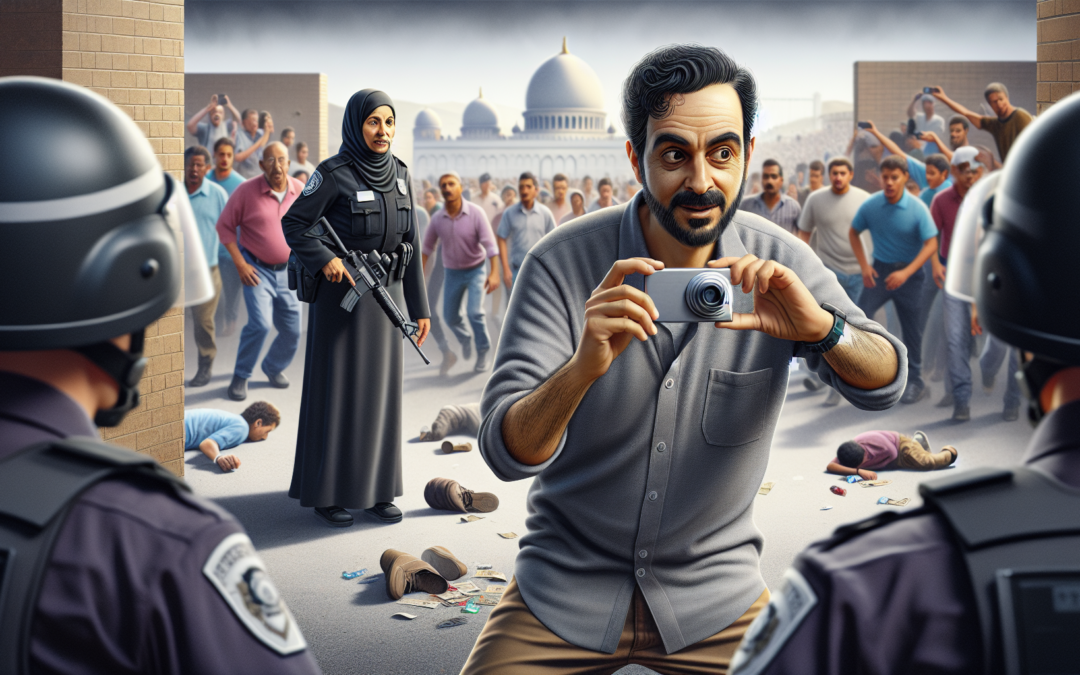Navigating the Labyrinth of Modern Policing: A Law Enforcement Perspective
In today’s hyper-connected digital landscape, officers frequently find themselves in the crosshairs of online scrutiny, facing challenges unlike anything seen in previous eras. What once could have been resolved through personal discourse now has the potential to be broadcasted globally with the click of a button. Such was the scenario explored in The John Ligato Show, where a routine police interaction with a self-proclaimed journalist spotlighted the grueling nuances officers contend with daily.
To revisit this pivotal episode, check out the show on YouTube and watch the highlighted video.
At its heart, this story examines the precarious position of law enforcers who stand at the front lines, tasked with translating the black and white texts of law into sensitive human context. When faced with so-called ‘frauditors,’ who intentionally press legal boundaries under the guise of civic transparency, the job of an officer transcends mere rule enforcement into the realms of patience and diplomacy. These individuals claim to challenge authority to uphold a certain public accountability, yet their methods often mask an agenda that can incite confrontation.
Each decision, each attempt at defusing potential escalations, adds a layer to the burden officers carry—not just the weight of their gear, but a burden that can erode personal conviction and exacerbate job-related stress. It’s a challenge that beckons the question: How do officers maintain equilibrium when every misstep invites social media condemnation?
Imagine for a moment the dual pressure of donning the noble uniform of law enforcement, designed to invoke protection and respect, while simultaneously wondering if today’s encounter will beckon unwarranted notoriety. Officers now walk a tightrope bordered on one side by the obligation to uphold public safety, and on the other by an ever-watchful society, quick to render judgment from the comfort of an online platform. This is more than an occupational hazard; it is an emotional crucible that can leave even the most steadfast officers questioning their place within the societal fabric they seek to protect.
Moreover, the phenomenon of fraudulent journalism—popularized, it seems, by the ease of video accessibility—has a corrosive effect on community trust. When the public is presented with edited clips devoid of context aimed at framing officers in negative light, the damage is done long before any narrative correction can occur. Public perception is key; it hangs delicately in the balance between truth and sensationalism.
Consider that behind every badge is a person—a life interwoven with the tenets of honor and service. Family dinners interrupted, holidays missed. And yet, here’s the rub: these very protectors, hailed as local heroes, frequently leave the station girded for trials beyond physical battles. Each shift brings new uncertainties, whether it’s a simple request for cooperation turning into shout matches or adhering to standard protocols under waves of public vitriol. It’s a form of warfare that isn’t televised, yet makes its unyielding impact felt in the personal toll it takes on their mental well-being.
When a decision made in the fraction of a second can be deemed heroic or ruinous, one cannot help but empathize with officers who yearn for recognition of their humanity over critical narrative. The commitment to serve selflessly, often under untenable scrutiny, demands an acknowledgment not just from authorities and stakeholders, but from community members—whose protection remains their unwavering purpose.
In a world where the narrative can be poignantly swung with an iPhone, where the unrelenting demand for accountability exists alongside incomplete understanding, how might we reimagine the police-public partnership? Law enforcement challenges us to evaluate not just the orientation of our collective lens, but the depth of our trust in those who safeguard our liberties.
As the journey unfolds, seeking balance remains an intrinsic quest for us all. To learn more about ongoing narratives in law enforcement and society’s pressing issues, visit the John Ligato Show on Facebook.
Will we choose merely to observe, or engage in positive discourse that honors the forthright endeavor of those committed to the perilous path of ensuring our safety? Only time will tell, as we walk each day on shared streets now blurred by the dynamic gaze of modern-day journalism.

Recent Comments